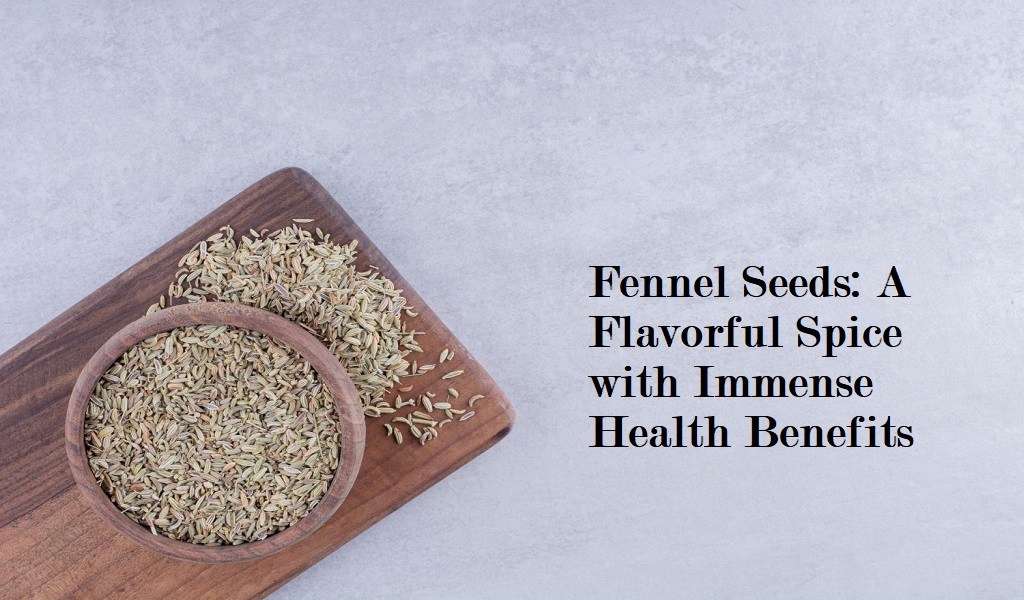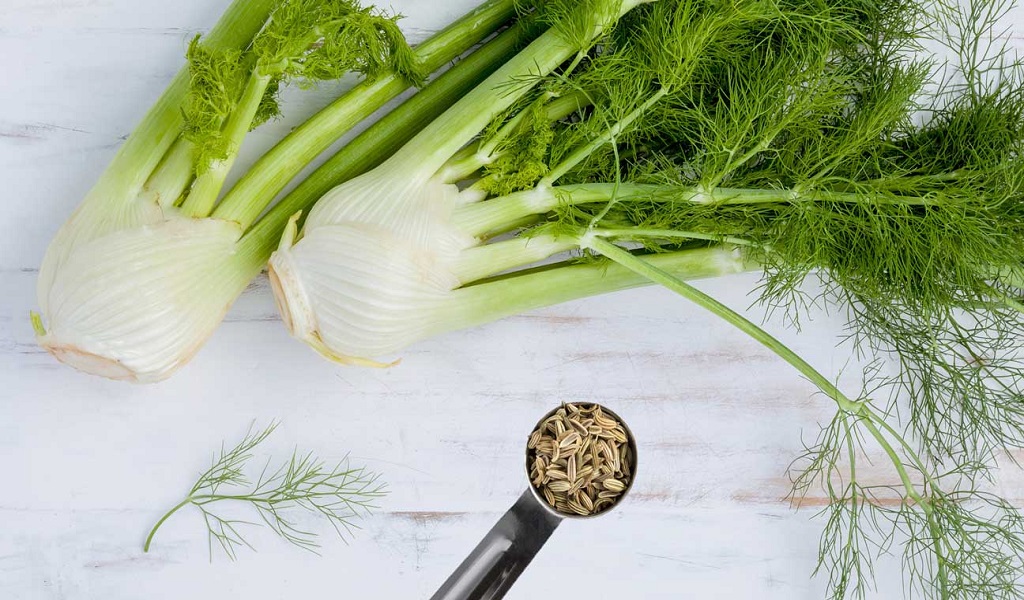
Fennel seeds, known as ‘saunf’ in Hindi, are a common spice found in many Indian kitchens. Indigenous to the Mediterranean, these aromatic seeds have been used for culinary and medicinal purposes in India for centuries. As more Indians are becoming health-conscious, there is a renewed interest in this spice that offers numerous health benefits beyond its distinct licorice-like flavor.
Weight Loss
Obesity is becoming increasingly common in India, especially in urban areas, due to sedentary lifestyles and unhealthy eating habits. The fiber and essential oils in fennel seeds can promote feelings of fullness and suppress appetite, making them a useful addition to a weight loss diet.
A study published in the Journal of Food Science and Technology found that women who chewed sugarless fennel seed gum after meals for three months showed significant reductions in appetite. This resulted in decreased food intake, spurring weight loss. The antioxidant and diuretic properties of fennel may also contribute to weight loss. Adding a teaspoon of fennel seeds to your morning tea or chewing some after meals can promote weight management.
Regulates Digestion
Fennel seeds are considered excellent digestive aids in Ayurvedic and Unani systems of medicine. Compounds like anethole, fenchone, and estragole in fennel seeds have antispasmodic and anti-inflammatory effects on the gastrointestinal tract. This can relieve indigestion, bloating, gas, constipation, and colic pain.
Fennel tea is traditionally given to infants as a colic-soother. For adults, chewing fennel seeds or having fennel water after meals can ease digestive issues. The fiber content also promotes regularity and healthy bowel movements. With gastrointestinal diseases on the rise in India, fennel seeds are a safe and effective digestive regulator.
Respiratory Relief
The potent essential oils and antioxidants in fennel seeds have expectorant properties that can clear congestion caused by coughs and colds. Compounds like cineole loosen phlegm and relieve bronchial spasms to provide cough relief.
Fennel is also used to treat respiratory symptoms in Ayurveda. It is believed to have a cooling effect that can soothe sore throats and reduce inflammation caused by respiratory illnesses. Boiling fennel seeds in water and drinking the tea is one of the best ways to obtain these benefits. The phytonutrients in fennel strengthen immunity to prevent recurrent respiratory infections.
Improves Heart Health
With cardiovascular disease becoming the leading cause of death in India, foods that boost heart health are extremely valuable. Fennel seeds contain nutrients like potassium, magnesium, and calcium that help regulate blood pressure.
The fiber prevents spikes in blood sugar that can lead to atherosclerosis – hardening of arteries. Phytosterols in fennel lower LDL or bad cholesterol levels in the blood. Increased HDL or good cholesterol and lowered triglycerides also minimize risk of heart attack and stroke. Adding fennel to your curries, salads and breads can protect your heart as part of a healthy diet.
Anticancer Potential
Some of the volatile compounds in fennel seeds display chemopreventive effects that could suppress tumor growth. The phytonutrients inhibit the multiplication and spread of malignant cancer cells.
According to a study in the International Journal of Molecular Sciences, fennel extract induced apoptosis or programmed cell death in liver cancer cells. More research is needed, but the antioxidants in fennel may eventually serve as natural cancer-fighting agents with minimal side effects.
Antimicrobial Properties
Fennel seeds exhibit strong antibacterial, antifungal and antiviral properties that protect the body from various infection-causing pathogens. Compounds like anethole, dillapional and eugenol found in fennel prevent the growth of many dangerous bacteria.
Using fennel essential oil or chewing fennel seeds can boost immunity and reduce the frequency of food poisoning, gastrointestinal infections and respiratory illness like cold and flu. The antimicrobial effects also accelerate healing of wounds when applied topically.
Oral Health
Chewing on a few fennel seeds is an age-old remedy to fight bad breath or halitosis. The seeds have antiseptic benefits that kill odor-causing bacteria in the mouth for long-lasting freshness. They are also used to treat toothache and prevent gingivitis due to their anti-inflammatory properties.
Fennel water can be used as a gargle to treat gum inflammation and mouth ulcers. Applying fennel paste on the gums can strengthen them over time. The main signs of poor oral health like bad breath and bleeding gums can be eliminated with this medicinal plant.
Neurological Benefits
Studies show that certain phytochemicals in fennel seeds may have neuroprotective effects. They exhibit anti-inflammatory, sedative and memory-enhancing capabilities. Fennel extract has been found to slow age-related brain function decline in rats.
Certain neurological disorders like Alzheimer’s and Parkinson’s diseases are linked to oxidative damage and inflammation in the brain. Compounds in fennel like rutin and quercetin possess strong antioxidant and anti-inflammatory properties that protect neurological health. More research is required to confirm these benefits in humans.
Hair and Skin Health
In addition to internal health, fennel seeds benefit hair and skin externally too. The zinc content promotes production of collagen that maintains skin elasticity to slow aging. When applied on the scalp, fennel oil reduces hair fall and triggers faster regrowth.
Fennel contains generous amounts of vitamin C which boosts collagen production and shields skin from UV damage. It acts as a coolant and cleanser when applied on the face and reduces the severity of acne breakouts. The antiseptic and anti-inflammatory properties speed up healing of wounds, burns and rashes on the skin.
Lactation Aid
Fennel has estrogen-like phytoestrogens that promote breast growth and milk production in lactating mothers. This is safer than hormone therapy to overcome issues like insufficient breast milk. It is also believed to impart a sweet taste and fragrance to breastmilk that babies seem to like.
New mothers in India are often given fennel water or ladoo after childbirth to aid lactation. However, excess intake should be avoided as it may trigger premature breast growth in infants. Nursing women should consume moderate amounts of fennel under medical guidance for maximum benefits.
How to Use Fennel Seeds

Here are some ways to incorporate fennel seeds into your daily diet:
- Add 1 tsp crushed fennel to curries, lentils and stews as a flavor enhancer
- Use fennel seeds to season vegetables like carrots, beans and broccoli
- Mix fennel powder into dough for making bread, cookies and pastries
- Soak 1-2 tsp of seeds overnight and drink the water in the morning
- Chew a handful of dry roasted fennel seeds as an after-meal digestive
- Prepare fennel tea by steeping 1 tsp crushed seeds in hot water
- Use fennel seed oil topically to treat skin ailments
- Sprinkle roasted fennel powder over salads, yogurt or oatmeal






